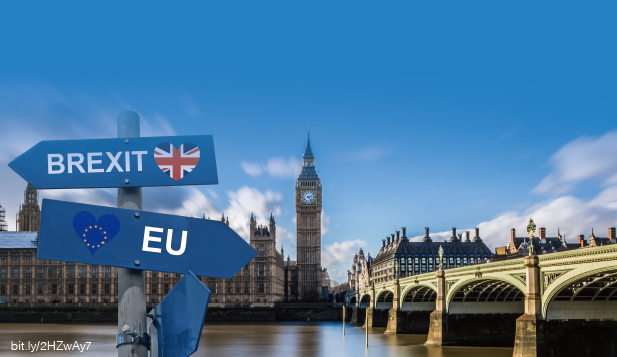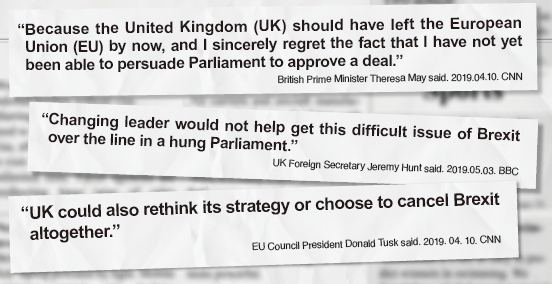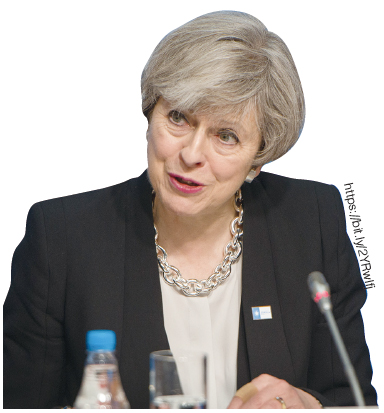

The world media is now spotlighting Brexit again. In fact, the British people already voted in favor of Brexit in 2016. Three years have passed already, but the British Prime Minister Theresa May has been calling for an extension of the deadline for EU. This is because Britain still has not reached a consensus on Brexit within the country. Consequently, EU leaders have now agreed on the extension of the deadline for Brexit up to Oct. 31, 2019.
#Brexit: It is a word combination of “Britain” and “exit.” It means Britain withdraws from EU. On 1975, there was a referendum to decide Britain’s stay at European Economic Community (EEC). This is considered as the start of Brexit.
- UK’s Treasury Department expects economic conditions to worsen if it secedes from EU because staying in EU serves as a big advantage to its trade.
- Javier Bertrand, the main Minister of Odd France, said in February 2016 that if UK secedes from EU, there would also be no free passage of channel tunnels from Calais to Dover.
#EEC (European Economic Community): It was launched on Jan. 1, 1958 by six countries: West Germany, France, Italy, Belgium, Netherlands, and Luxembourg. The EEC has evolved into a single system by absorbing European Coal and Steel Community (ECSC) and EURATOM; a nuclear community in Europe, which were independent respectively. Based on the spirit of European integration, it expanded from six previous countries to nine countries in Jan. 1, 1973, including UK, Denmark, and Ireland as its new members.
In 2015, David Cameron, the Prime Minister of UK, tried to make a second term. He presented a Brexit referendum to calm ultra-nationalists in the conservative party and make consultation for UK’s participation in EU. He made his second term and then he had gotten good terms for UK at the discussion about Brexit with EU.
However, the result of the referendum on June 23, 2015 was passed, and Cameron resigned from his position. After then, Theresa May took the position. On March 2017, UK and EU were on a negotiation for two years by the Treaty of Lisbon. May and EU reached an agreement on a draft which is about the British living in EU member states, the member nationals living in UK, a boundary issue between Ireland and Northern Ireland and etc., on November 2018. Soon after, 27 member states including May signed on the agenda at EU commemorative summit.

#UK-EU Brexit border paradox: A boundary issue between Ireland and Northern Ireland: England, Wales, Scotland, and Northern Ireland, which make up UK, belong to EU now. On June 23, 2016, England and Wales voted to leave EU, but Scotland and Northern Ireland said they would stay in EU. EU proposed that only Northern Ireland remains in the customs union. However, UK proposed a simple passage and customs procedure on the Northern Ireland border on the condition of tariff-free trade with EU, but it was opposed by the idea that EU customs clearance process could be disabled. The current solution is that even if UK leaves EU, it will have a transition period till December 2020, so until a separate agreement reached, the entire UK, including Northern Ireland, will remain in EU Customs Union for the time being.
#Treaty of Lisbon: Its formal name is EU Reform Treaty. It took effect on Dec. 1, 2009. This treaty gave a transnational status to EU. Also, it replaced the Europe constitution. In accordance with its provision of Article 50 about the withdrawing of EU member states, any states of EU can decide to leave EU in a manner that satisfies the constitutional needs of that country. Once the member states have notified the European Council of their exit from EU, negotiations for withdrawal between the applicant countries and EU would begin and diplomatic relations with EU would be established in the future. Whether the withdrawal negotiation is completed or not, the negotiation period is two years and can be extended if the European Council unanimously agrees.
Yet, the first agenda was thrown out by a gap of 230 votes in a vote of assent of the House of Commons. On January 2019, May and EU consulted again. On March 2019, a Brexit amendment was settled which includes supplementation of borders safety of Ireland and Northern Ireland, and reinforcement of legal obligation between the two states. The amendment was thrown out at the House of Commons too, so people got worried for the no-deal Brexit. The house passed the government proposal to postpone Brexit. After that, EU accepted a time extension. Despite of all these efforts, other alternatives and agendas were all thrown so the no-deal Brexit has emerged as a major issue.
#No-deal Brexit: It means that UK exits from EU with no agreements. If then, UK will immediately come out from EU and also from the World Trade Organization (WTO) system. In that case, UK does not have to follow all rules of EU and will lose benefits as an EU state. UK and EU have agreed to set a transition period for the smooth implementation of Brexit in their withdrawal agreement. During the transition period, UK can continue to enjoy the benefits of staying in EU single market and the customs union as it is now, and residents on both sides can also move freely. However, UK must comply with EU regulations and pay its share. EU’s jurisdiction will also be maintained, but UK will be unable to participate in EU’s decision-making process because it has lost the right to vote as well.
There are two aspects in defining Brexit. It depends on whether UK is contained in the economic range of Europe. Soft Brexit refers to UK maintaining their rights of tariffs in some parts of EU region, and keeping EU and the common market at the current level. This concept includes an acknowledgement of UK’s contribution in EU community. Although UK will be seceding from EU, UK will pay EU contributions while maintaining its status. On the contrary, Hard Brexit means UK withdrawing completely from EU. This is the opposite of soft Brexit. This kind of condition can limit the number of immigrants by completely recanting from EU, strengthening border control, and not paying the share. In this case, UK would be separated from the European market so a new trade agreement is required.
One of the biggest reasons why Brexit was brought onto the table was the economic crisis in 2008 which is known as the Subprime Mortgage Crisis. UK bore the brunt of the crisis and at the same time they even had to support EU states (like accommodating workers from Poland, Turkey, and so on). Unlike the other EU states, at first, UK did not do a referendum for joining the Treaty of Maastricht. Their share of the expenses had gotten bigger, but their status in EU was not high enough. Increasing welfare expenses for immigrants and decreasing number of jobs made the public turn against EU, too.
#Treaty of Maastricht: The treaty was constituted in 1991. It includes the creation of the European Central Bank, the Economic and Monetary Union by using single currency, the unification of labor conditions, the joint defense policy, and the Europe civil rules. UK participated in the economic currency alliance, but refused to accept continental welfare policies such as the single currency use and minimum wage system. The draft had a reference to a “federal” in its full text, but with strong oppositions from UK and Denmark, the wording was erased and changed to a “close union” at the suggestion of the Netherlands.
At the EU Special Summit held on April 10, 2019, European leaders decided to extend the Brexit deadline until Oct. 31, 2019. By this decision, UK avoided the no-deal Brexit. EU also agreed to leave the country soon if the British Parliament approves Brexit before the deadline. Also, if it fails to leave EU by May 22, UK will participate in European Parliament elections held on May 23 to 26. If it does not attend, it will automatically leave EU on June 1. In addition, 27 EU leaders will meet again on June 30 to confirm the progress of Brexit.
If UK pushes ahead with the no-deal Brexit, Korea could suffer from losses in trade. United Nations Conference on Trade and Development (UNCTAD) cited in their report released in April 2019 that South Korea’s exports to UK will fall to 714 million USD from the no-deal Brexit. On the contrary, China, the United States, and Japan can relatively benefit from the no-deal situation. The reason is based on the Most Favored Nation treatment (MFN). MFN is an obligation to impose the same tariffs on countries that have not signed individual trade agreements. Therefore, goods from countries that used to enjoy preferential treatment in UK market will lose its competitiveness, while those countries that have not had trade pacts with EU will not. Even if there is an orderly Brexit, there are considerable concerns about changing trade terms. In response, UK promised to restore its trade system by signing bilateral agreements with Britain and other countries by copying current trade agreements between EU and the third countries.
Brexit will have a considerable impact on Korea as well. This is because it will have nothing to do with the existing FTA signed with EU. UK, which has only been subject to the WTO rules, a multilateral trade pact, must sign bilateral trade agreements such as FTA with South Korea as well as EU. As of last year, trade volume between South Korea and UK reached a record 14.44 billion USD. On the basis of that, the FTA was signed between Korea and the EU. However, if “Brexit” is realized, especially the no-deal Brexit, existing tariff rules will turn useless in trades with UK. As a result, Korean companies would have to export goods to the UK with tariffs that are expected to increase significantly. In addition, customs procedures would be more complex and new certifications should be obtained for goods and services. This situation will inevitably continue until the moment the Korea-UK FTA is signed.
Jeong Ji-eun
jjen1026@uos.ac.kr
Yi Se-won
devel0ppe@uos.ac.kr

